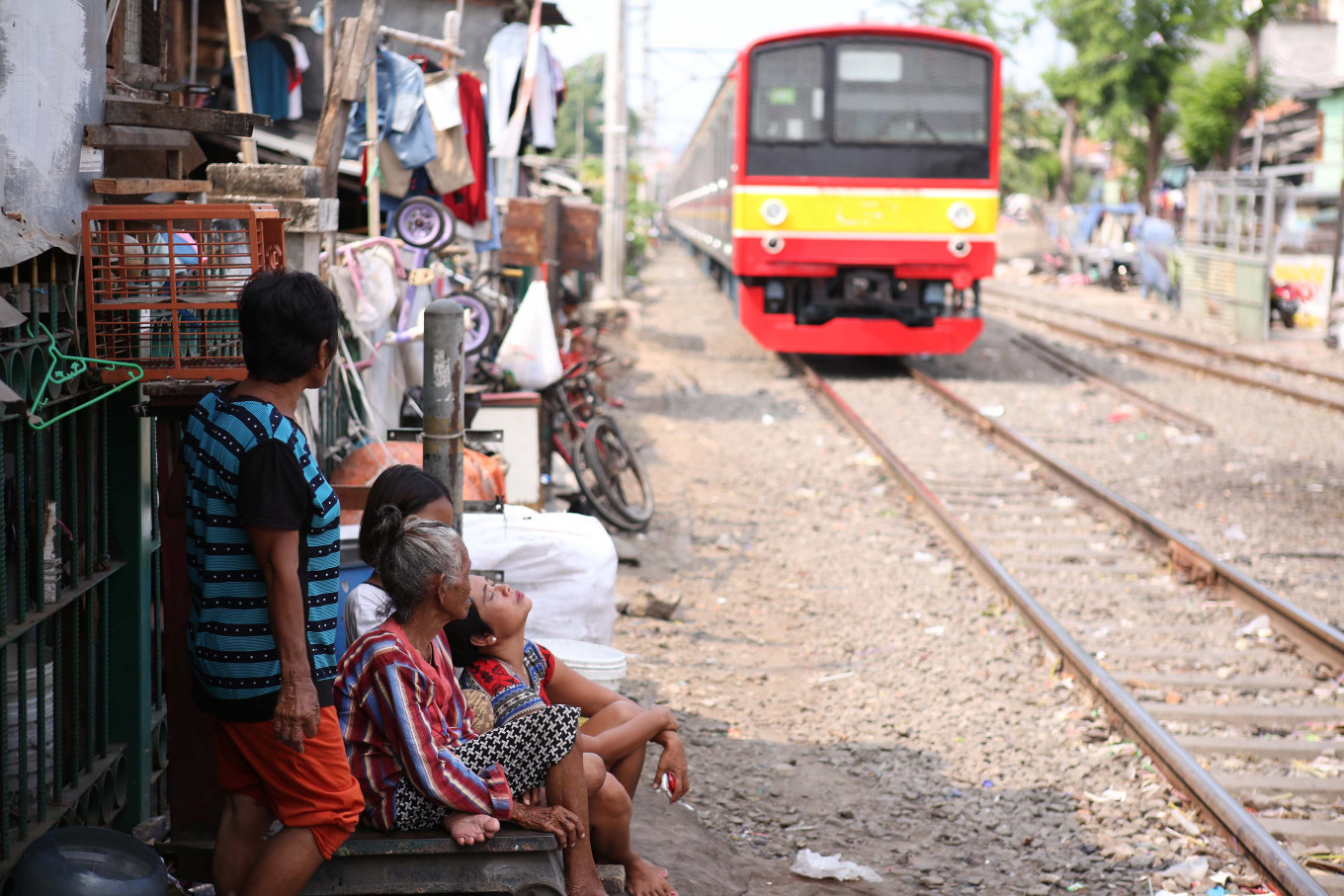Popular Reads
Top Results
Can't find what you're looking for?
View all search resultsPopular Reads
Top Results
Can't find what you're looking for?
View all search resultsCOVID-19: Govt to provide Rp 4.5t in social assistance to millions of low-income people in Jakarta
Social Affairs Ministry launches assistance program to help residents impacted by COVID-19 pandemic.
Change text size
Gift Premium Articles
to Anyone
T
he Social Affairs Ministry is preparing an assistance program worth around Rp 4.5 trillion (US$276 million) to serve as a cushion for residents in Jakarta impacted by the COVID-19 pandemic.
Partnering with the Social Affairs Ministry, the Jakarta administration is planning to provide Rp 1 million to each household for a targeted 2.6 million residents, comprising the poor and vulnerable groups, between April and May, Jakarta Governor Anies Baswedan said on Thursday.
As of September 2019, there were 362,300 poor residents in the capital city with monthly spending below Rp 663,355 per person. The figure is down 0.27 percent from the same period in 2018, according to Statistics Indonesia’s Jakarta office (BPS Jakarta).
However, the administration and the ministry have data only on poor residents who have been registered in the government’s social safety net programs. They do not have data on the vulnerable residents. Incomplete data on the targeted residents thus poses a challenge to the plan.
“We need time to identify the groups vulnerable to fall into poverty,” Anies said during an online video conference with Vice President Ma’ruf Amin on Thursday.
Read also: Indonesia braces for recession, activates crisis protocol
“These are people who have not received any direct assistance,” said Anies. They are motorcycle taxi drivers, meatball sellers and street vendors. They do have an income. But when the economy is contracting, they lose their income.”
The targeted residents in Jakarta are expected to suffer losses because the administration ordered the suspension of school, office, religious and public activities as it declared a state of emergency between March 16 and April 19. As people are staying at home, they are buying less goods and services as reflected in quiet traditional markets.
The extended state of emergency in Jakarta, the national epicenter of the outbreak, was a response to the recent wave of coronavirus cases that shows no signs of slowing down yet.
Jakarta has been the hardest hit province in the country with 897 confirmed cases and 90 fatalities, nearly half the nationwide figure of 1,790 cases and 170 fatalities.
Anies further said that some residents falling into the group were not Jakarta residents by their identity cards, which made it harder for the administration to collect their data.
The administration will use data it has been collecting through a program called One Jakarta, which employs the Family Welfare Movement (PKK) to collect household data.
Editor's note: The heading and lead of this article have been updated to clarify the source of the social assistance.










